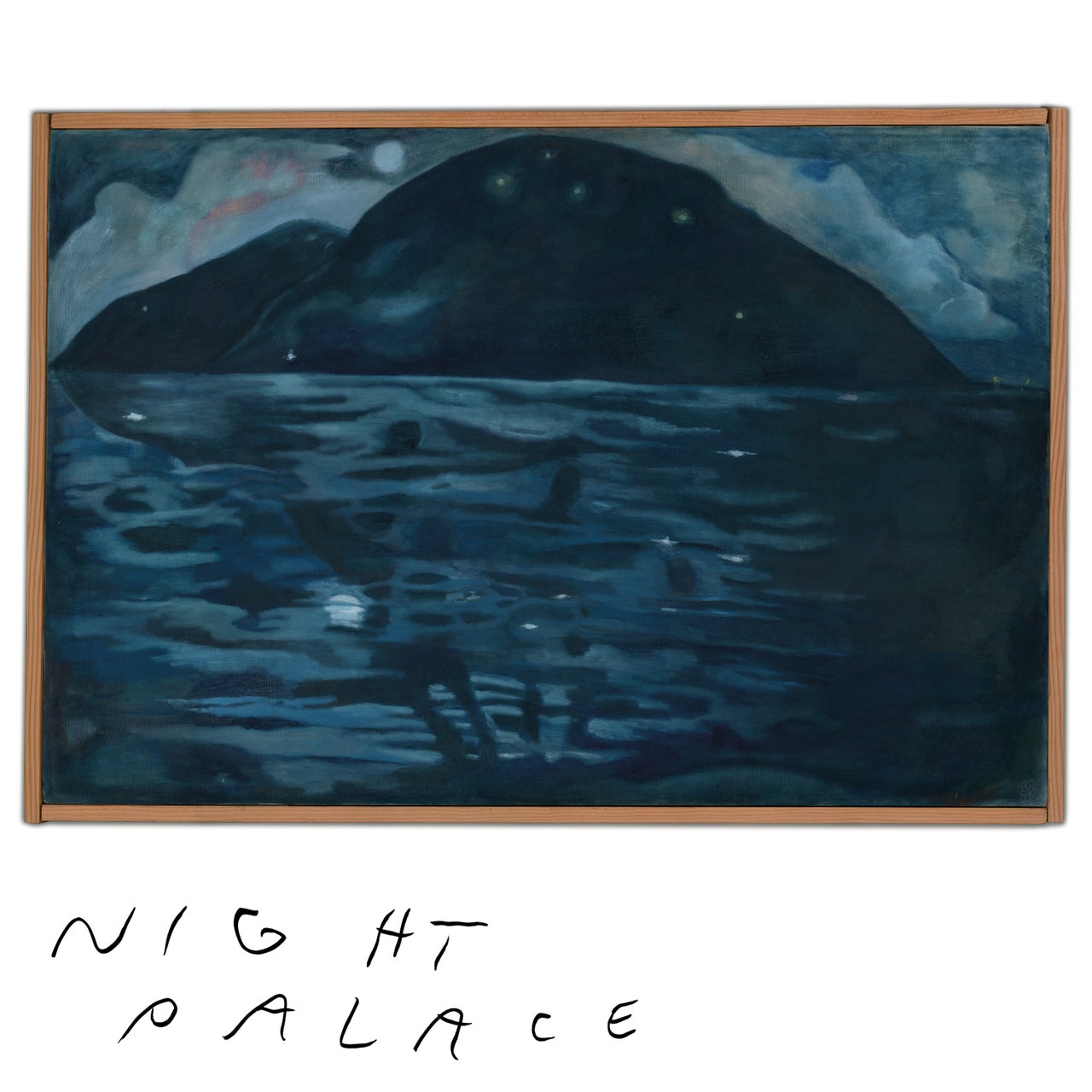Phil Elverum’s music, like the old-growth forests where the Washington songwriter has found work of late, is defined by cycles of destruction and rebirth. The first major rupture came when he blew up the Microphones after 2003’s Mount Eerie and took the album’s name as a new alias; the second came after the death of his partner, Geneviève, in 2016, on a series of austere albums that reckoned with his younger self’s poetic treatment of impermanence. Elverum’s monumental new Mount Eerie album Night Palace feels both like a third definitive rupture and a culmination of his work over the past 25 years. Its 81-minute embrace finds room for all the earlier Elverums: the Zen poet, the stark realist, the black-metal shaman, the kid tinkering with recording gear in the back room of The Business in Anacortes and teaching himself how to bring the sounds in his head to life.
It also answers the question of whether he’d ever again make an epic like his early masterpiece The Glow, Pt. 2, steeped in natural imagery and generous with studio trickery. After a run of stripped-down records where “all poetry is dumb” was a mantra, it’s a relief to hear an album where he literally recites poetry twice—and also talks to a fish, which responds in a familiar stoner drawl. Night Palace embraces some of the biggest vistas and most sumptuous imagery of any album he’s ever made. Yet the songwriting voice is distinctly that of the post-A Crow Looked at Me Elverum, always questioning his own art and assumptions, awed by the natural world but wary of assigning metaphorical significance to it. At 46, he’s still trying to explain what the long song he’s been singing for his entire career really means.
At 26 tracks just barely topping the capacity of a single CD, Night Palace is a double album by any definition, not least in the classic-rock sense, and the messy but truthful sprawl that implies. The first disc contains some of the loveliest songs Phil Elverum has ever written. “Broom of Wind” is a perfect miniature, as concise as the Joanne Kyger poem that gives the album its name, set to astonishing celestial baroque pop and over in 99 seconds; he immediately outdoes himself with “I Walk,” one of those numinous ballads he does better than just about anyone else in indie rock. “Blurred World” is a vignette of contentment, set during a midnight piss, that lets a bit of MJ Lenderman’s shaggy-dog humor into Elverum’s universe. “Empty Paper Towel Roll,” “I Saw Another Bird” and seasick-sounding early highlight “Huge Fire” proceed from the same scrappy live-band sound he explored on 2015’s Sauna, the last album he put out before Geneviève’s death.
